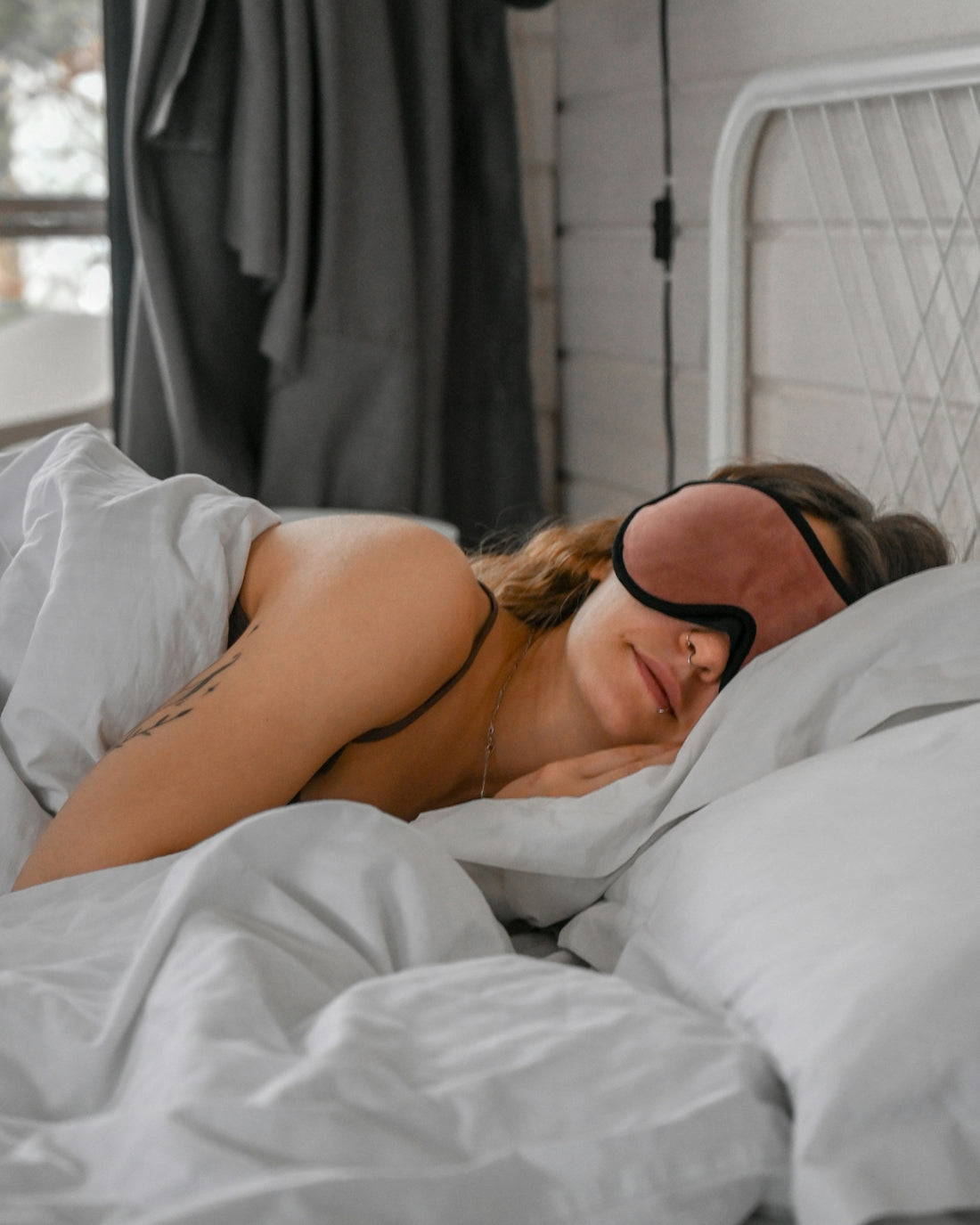
Sleep Deprivation and Weight Gain: How Skimping on Sleep Can Add Pounds
Share
Sleep Science
Discover the surprising link between insufficient sleep and increased calorie intake, along with effective strategies for prioritizing rest to maintain a healthy weight.
It’s no secret that getting enough sleep is essential for our overall health and well-being, but did you know that consistently missing out on quality rest could be the hidden reason behind unwanted weight gain? Studies show that sleep deprivation might lead to consuming more calories, affecting hunger hormones, and ultimately packing on the pounds.
Let’s break it down.
The Sleep and Weight Gain Connection
If you’re not getting enough sleep, you could be setting yourself up for an increase in daily calorie intake. In fact, one notable study published in The American Journal of Clinical Nutrition found that sleep-deprived participants consumed around 300 to 400 more calories per day than those who get adequate rest. Over time, this calorie surplus can lead to significant weight gain. Here’s how the math works out:
- 300 extra calories/day x 365 days = 109,200 extra calories per year.
- That adds up to approximately 31 pounds over 12 months!
But what exactly causes this increase in calorie consumption when we’re sleep-deprived? The answer lies in the delicate balance of our hunger hormones—ghrelin and leptin, according to research published in the National Library of Medicine. The study also highlighted how sleep-deprived individuals often experience higher levels of cortisol, a stress hormone that can contribute to fat storage, particularly around the abdominal area.
How Sleep Deprivation Disrupts Your Hunger Hormones
When we don’t get enough sleep, the body produces more ghrelin, the hormone that signals hunger and tells us it’s time to eat. Simultaneously, the production of leptin—the hormone that signals when we’re full—decreases. This imbalance can lead to:
- Increased appetite: Ghrelin spikes tell your brain to eat, and when your body produces less leptin, it doesn’t tell you to stop.
- Craving high-calorie foods: Lack of sleep is known to heighten cravings for high-fat and high-carb foods, making it harder to resist late-night snacks like pizza or donuts.
- Poor food choices: When you’re tired, it’s harder to make healthy decisions, which can lead to overindulging in junk food.
Why Prioritizing Sleep Is Essential for Healthy Weight Management
Weight gain isn’t the only risk associated with sleep deprivation. Lack of sleep has been linked to a host of other health issues, including:
- Decreased energy levels: Poor sleep can make it harder to stay active and exercise, further contributing to weight gain.
- Impaired decision-making: Sleep deprivation affects the brain’s ability to make sound choices, making it easier to opt for unhealthy foods or skip workouts.
- Slower metabolism: Research shows that inadequate sleep can negatively impact your metabolism, making it harder for your body to burn calories efficiently.
When you prioritize sleep, you allow your body to reset, regulate hunger hormones, and maintain a healthy weight.
How Much Sleep Do You Need?
According to the Centers for Disease Control and Prevention (CDC), adults should aim for at least 7 to 9 hours of sleep per night to maintain optimal health. Making small adjustments to your bedtime routine, such as creating a consistent sleep schedule, reducing screen time before bed, and ensuring a relaxing environment, can make a big difference in your sleep quality.
Final Thoughts
In today’s busy world, sleep often gets pushed to the back burner. However, consistently skimping on sleep can have serious consequences, including significant weight gain. By understanding how sleep impacts hunger hormones like ghrelin and leptin, we can see how lack of sleep can make it harder to maintain a healthy weight.
If you're struggling with sleep and its impact on your health, RESTOR and RESTOR+ may help promote consistent, high-quality rest. These Nano CBD-powered solutions are formulated to encourage relaxation, promote a sense of calm, and help you get a full night of restorative sleep. By supporting your body's natural sleep cycle, OLO’s sleep products make it easier to fall asleep and stay asleep, helping you maintain a healthier weight and overall well-being.
Ready to make sleep a priority? Your body—and your waistline—will thank you.
